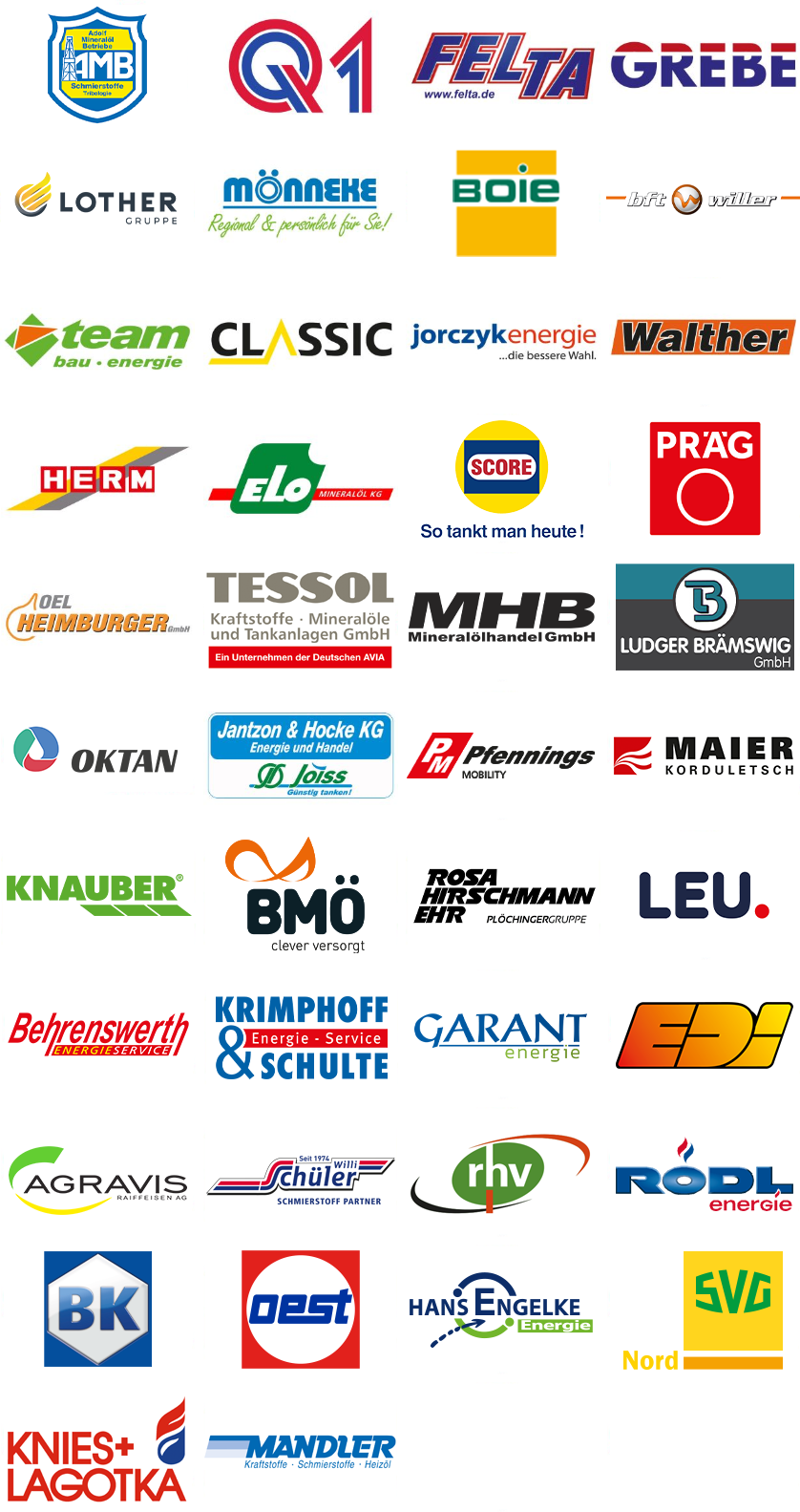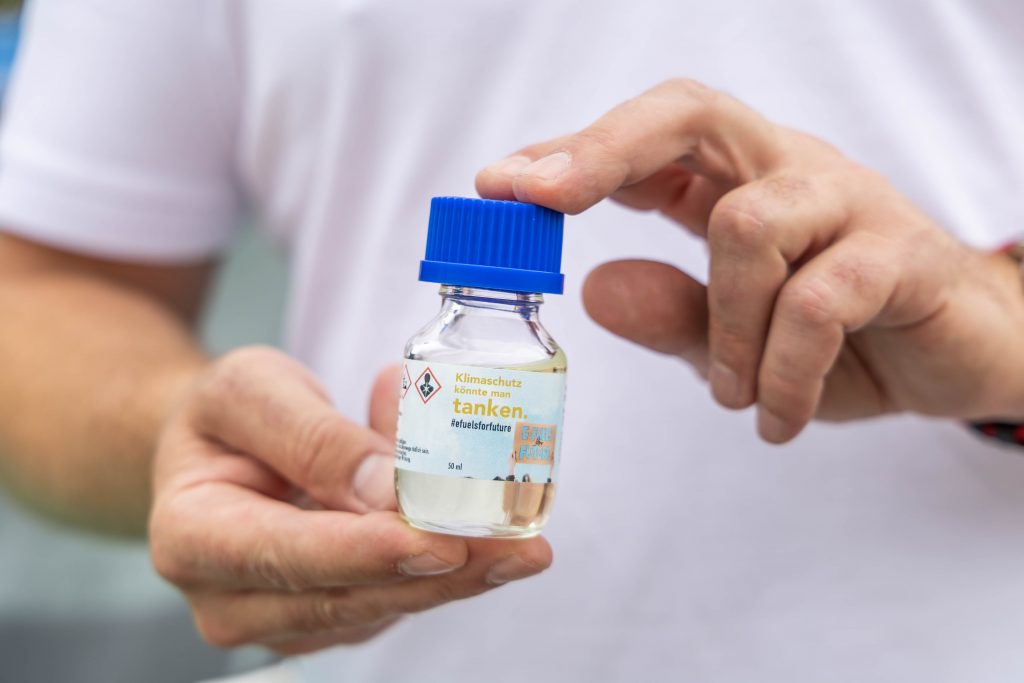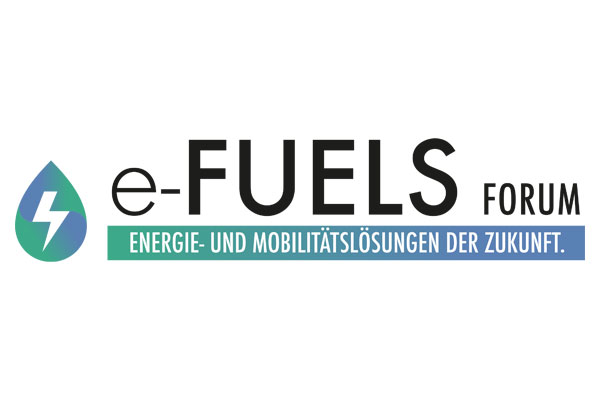
Legal opinion against the EU’s ban on combustion engines
Is the ban on combustion engines not only wrong, but even illegal? According to many sources – including the Bild newspaper – a new legal

Mit dem Laden des Videos akzeptieren Sie die Datenschutzerklärung von Vimeo.
Mehr erfahren
eFuels are an important component of tomorrow’s mobility. These are synthetic and CO2-neutral fuels. They are a useful addition to the energy mix of the future, which will consist of hydrogen, electromobility and eFuels. According to many experts, hydrogen and electromobility alone are not sufficient to enable sustainable and CO2-neutral road transport.
We explore the most important questions on the topic and provide news on eFuels.


eFuels are inefficient? eFuels will be expensive? eFuels should only be used in shipping and aviation?
We provide the right answers in cooperation with experts and scientists from the Karlsruhe Institute of Technology (KIT) and the Hamburg University of Applied Sciences (HAW Hamburg).


Is the ban on combustion engines not only wrong, but even illegal? According to many sources – including the Bild newspaper – a new legal

Are the EU’s “CO2 reduction targets” even achievable with an “electric only” strategy? According to Focus, the renowned experts from the research association IASTEC (International

Do e-cars currently still have significantly more defects than combustion cars? According to msn.com and other news portals, the new U.S. Initial Quality Study (IQS)

Is Ursula von der Leyen buckling on the issue of reversing the ban on combustion engines because of the demands of the European Social Democrats?

120,000 loss per e-vehicle sold and 1.3 billion loss in one quarter in the electric car division – according to Focus and Bit Projects, the

Strong performance by the eFuels team at the PS Days last weekend! According to the organizers, over 40,000 visitors attended this tuning, performance and style
Our eFuels info tour across Germany – from Flensburg to Freiburg. We have collected many impressions on the stops and compiled them for you in individual diaries.
Our free newsletter informs you regularly by e-mail about product news and special promotions. The data you enter here will only be used to personalize the newsletter and will not be passed on to third parties. You can unsubscribe from the newsletter or revoke your consent at any time by emailing . Your data will be deleted within 2 months after termination of the newsletter receipt, provided that the deletion does not conflict with any legal retention obligations. By sending the data you have entered, you consent to the data processing and confirm our privacy policy.
eFuels (“Electricity-based Fuels”) are liquid synthetic fuels produced from hydrogen and carbon dioxide using green electricity. Since only as much CO2 is released during their use as was previously removed from the atmosphere during their production, they are CO2-neutral
The basis for producing eFuels is power-to-liquid pathways, which produce electricity-based liquid fuels using renewable electrical energy. First, green hydrogen is produced from desalinated seawater by electrolysis using renewably generated electricity, which is then synthesized into a CO2-neutral liquid and fuel using the Fischer-Tropsch process or via methanol synthesis with carbon dioxide.
The chemical properties of eFuels correspond to those of conventional (fossil) liquid fuels. They have a high energy density and can be easily transported as well as stored. These properties make it possible, among other things, to import low-cost renewable energy from sun- and wind-rich areas of the world to Germany in the form of eFuels. The necessary border crossing, storage and supply infrastructures are already in place today.
eFuels can replace all common mineral fuels, combustibles and lubricants. They can therefore be used in all modes of transport (cars, trucks, aircraft and ships), in condensing heating and as a crude oil substitute in the chemical industry. A retrofit is not required. They can be used as admixtures in any proportion in fossil fuels or as pure climate-neutral energy sources.
There are different synthetic fuels that are not derived from petroleum. These also include the so-called eFuels. eFuels are made from water and can be developed to be up to 100% CO2-neutral through renewable energy production.
In eFuels, water is converted into hydrogen through the use of renewable electricity. The process is known from physics lessons as electrolysis. In a further step, the greenhouse gas CO2 is taken from the air and converted with the hydrogen into a new liquid energy carrier. A so-called “synthetic” hydrocarbon is formed.
Because electricity plays an important role in their production, they are referred to in English as electrofuels. The term eFuels is derived from this. The entire process is also called power-to-liquid (called PtL). The electricity can be generated from renewable sources, such as wind power or from solar energy. Both ingredients and production are thus primarily based on the use of natural and regenerative components. Thus, eFuels are fully future-proof: they are CO2-neutral!
With the 2015 Paris Climate Agreement, 195 countries committed to the goal of counteracting global warming caused by human activity. The joint treaty sets a target of less than two degrees Celsius of warming compared to pre-industrial times. In the best case, the temperature should even fall below 1.5 degrees Celsius. There are several areas where technical improvements should be implemented to achieve the goal. Affected sectors include power generation, numerous industrial sectors and the transport sector.
There are scientific calculations under which conditions the climate target can be achieved. They are based on a fixed budget of CO2 emissions that must be complied with in any case. It is clear that the current global consumption of raw materials and previous energy sources cannot be reconciled with these goals. Modern and innovative technologies are needed that are environmentally friendly and build on the use of renewable energies to a greater extent.
This is where the production of eFuels comes in. The development of industrial plants is already very advanced. For example, Porsche & Siemens are to build a plant in Chile that will produce 550 million liters of eFuels annually from 2026. As larger quantities are tested and produced, the manufacturing processes generally become more efficient and suitable for mass production.
Electric cars are currently experiencing an upward trend. Widespread subsidies will make purchasing more palatable to consumers. For the purpose of environmentally friendly mobility, motorists buy a new e-vehicle which, although it is largely CO2-neutral locally in operation, emits large amounts of CO2 in the production and recycling of the battery. In a life cycle analysis, battery electric vehicles are therefore anything but climate-neutral. But current subsidies make buying an e-car seem lucrative; so waste is occurring on multiple levels.
Hydrogen cars are fueled with hydrogen. Fuel cells use electrolysis to generate electricity from this to operate the vehicle. The consumer must also purchase these vehicles in addition. Besides, there is currently no suitable infrastructure covering the entire country for either type of drive.
The use of eFuels is much less complicated and easier to implement in everyday life. Once the new synthetic fuels have reached market maturity, they can simply be refueled at a service station. The existing and closely meshed network of filling stations can be used for this purpose. So there is no need to build additional worldwide charging points like for electromobility & hydrogen cars.
The start of CO2-neutral mobility with eFuels is easy to implement: eFuels can already be refueled in today’s combustion vehicles. Nothing changes for the consumer during the changeover, except that he or she uses a different energy source that is largely CO2-neutral. During production, approximately as much carbon dioxide is bound as is subsequently released during combustion.
The ecological footprint in driving operation is thus reduced to a minimum. From an ecological point of view, it is also important to know that the emission of soot is by far not as high as, for example, in the case of a diesel engine. for a conventional car that fills up with fossil fuel from petroleum.
A major additional benefit is that eFuels can replace petroleum in many different areas. Not only cars, but also trucks, airplanes, passenger and freight trains, and even ships can run on synthetic gasoline & diesel. In addition, it will be possible to heat with eFuels. They are a full substitute for conventional fossil fuels and heating oil.
Currently, it is not yet possible to refuel pure eFuels nationwide. It will certainly be a few years before that happens. However, important milestones have already been set in motion. From 2023, it will already be possible to buy fuels blended with eFuels at some service stations. The proportion of synthetic fuel can be up to 20% according to the current DIN. The plan is to keep changing the ratio in favor of eFuels in the future, so that after a few years the fuel will be either mostly or even entirely made up of them.
Motorsport wants to show how unproblematic the switch from a fossil gasoline to an eFuel can be. In the past, it has repeatedly been a testing ground for trying out and further developing new technologies before they go into series production. Formula 1, for example, plans to rely entirely on the use of eFuels from 2023. The special feature: The engines will initially be designed to run on gasoline, as they will be used as early as the 2022 season. From one season to another, the fuel is changed. Adjustments to the engine is prohibited by the regulations. This shows the uncomplicated possibility of switching from previous fossil fuels to eFuels.
The production of eFuels is not geographically limited. They can also be produced here in Germany, as the necessary resources are available. This is, of course, a decisive advantage compared to fuels derived from petroleum. In large quantities, the oil is available only in distant countries. Crude oil has to be transported to the various geographical markets, which takes a long time and involves high costs. In order to meet the world’s demand for green energy, however, in the long term eFuels should be produced in sun- and wind-rich regions.
German industry is already driving the development of eFuels. In addition to sports car manufacturer Porsche, which is the pioneer within the Volkswagen Group, Siemens, among others, has joined a joint pilot project to develop CO2-neutral synthetic fuel.
If there is decentralized production of synthetic fuels in a large number of different countries, this could lead to a new structure on the world market. Finally, the countries will then no longer be dependent on the OPEC states alone for the procurement of their energy sources.
More green electricity is needed to produce eFuels than to run an electric vehicle. If renewable energies are no longer a scarce commodity from a global perspective and eFuels are produced in the future in regions with ideal conditions for solar and wind energy such as North Africa, Patagonia, Australia, the Middle East, this balance will already look quite different.
eFuels from all over the world can then be transported easily and cost-effectively to the filling station via existing infrastructures, compensating for a large part of the efficiency losses in energy conversion.
Then the difference in overall efficiency between direct electrification and imported eFuels is much smaller than often indicated.

Image sources: Photo by Artem Verbo on Unsplash, Photo byMilan Popovic on Unsplash, Photo by Tasos Mansour on Unsplash, Photo by Anthony Tori on Unsplash